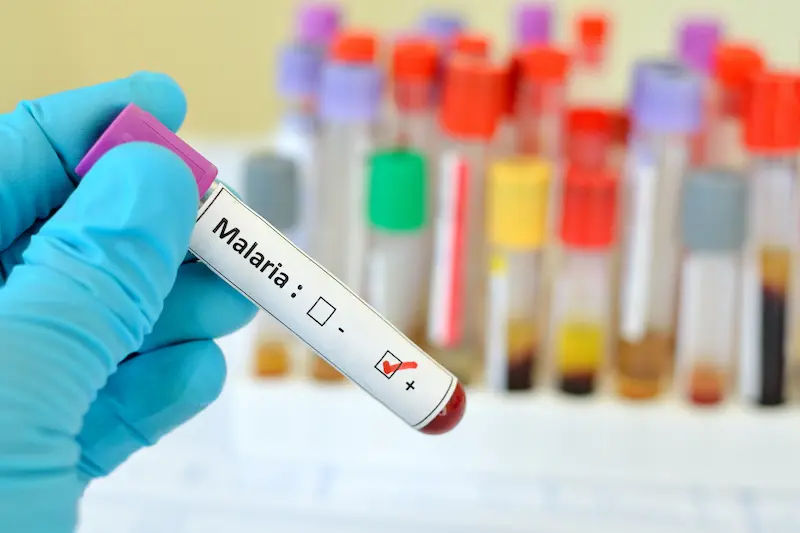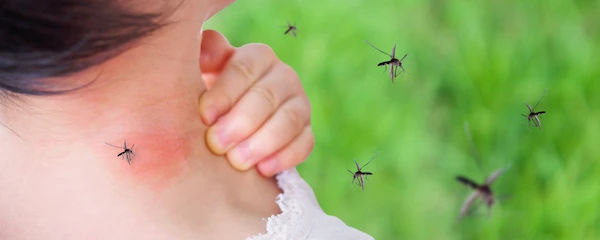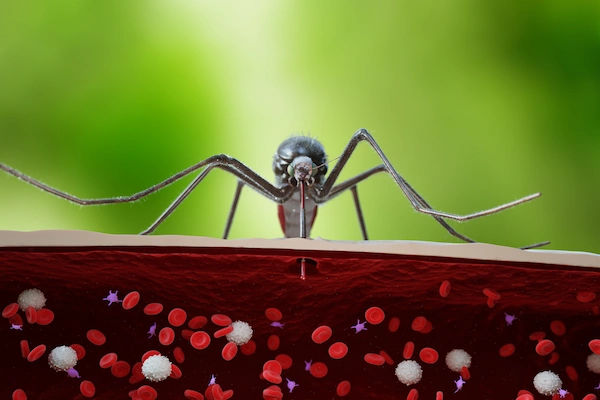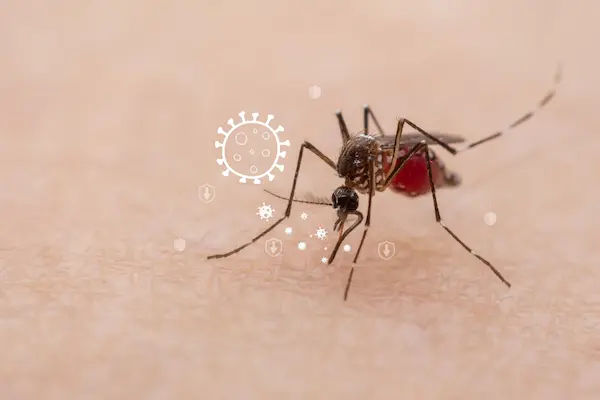The Lasting Impact of Malaria and Essential Lifestyle Tips for Recovery & Prevention
Discover the lasting impact of malaria on health, society, and economy. Learn essential lifestyle tips for prevention, recovery, and long-term wellness.

Written by Dr. J T Hema Pratima
Reviewed by Dr. Mohammed Kamran MBBS, FIDM
Last updated on 13th Jan, 2026

Introduction
Malaria is often dismissed as a simple "fever," but its true impact extends far beyond a few days of illness. Caused by a parasite transmitted through the bite of an infected Anopheles mosquito, malaria remains one of the world's most significant public health challenges, particularly in tropical and subtropical regions. This disease doesn't just cause chills and sweating; it can have profound, long-lasting effects on your physical health, cognitive function, and even your economic stability. Understanding this full impact is the first step toward effective prevention and recovery. This article goes beyond the basics to explore the multifaceted consequences of a malaria infection and provides a practical, actionable guide to lifestyle adjustments that can shield you from the disease and support your body's healing journey if you do contract it. We will delve into everything from immediate symptoms to long-term recovery, empowering you with the knowledge to protect your health proactively.
Understanding Malaria: More Than Just a Fever
What Exactly is Malaria?
Malaria is not a viral or bacterial infection; it's caused by single-celled parasites belonging to the Plasmodium genus. When an infected mosquito bites a person, it injects these parasites (sporozoites) into the bloodstream. They travel to the liver, mature, and then re-enter the blood to invade red blood cells, multiplying rapidly and causing the cells to burst. This cycle of invasion, multiplication, and rupture is what leads to the characteristic cyclical fevers, chills, and flu-like symptoms. The most severe form is caused by Plasmodium falciparum, which can lead to life-threatening complications.
The Global Burden of Malaria
The impact of malaria on a global scale is staggering. According to the World Health Organization's (WHO) latest World Malaria Report, there were an estimated 249 million malaria cases and 608,000 deaths in 2022. The burden is heaviest in the WHO African Region, which accounts for approximately 94% of all cases and deaths. This high prevalence places an immense strain on healthcare systems and has a crippling effect on the economies of endemic countries, hindering development and productivity.
The Multifaceted Impact of a Malaria Infection
The Immediate Physical Toll: Symptoms and Acute Phase
The initial impact of malaria is often sudden and severe. Symptoms typically appear 10-15 days after the infective mosquito bite. The classic presentation involves cycles of:
Cold Stage: Feeling intensely cold and shivering.
Hot Stage: High fever, headaches, and vomiting.
Sweating Stage: Profuse sweating followed by fatigue and a return to normal temperature.
These cycles can repeat every 48 or 72 hours, depending on the parasite species. Other common symptoms of severe malaria can include profound fatigue, muscle aches, and jaundice.
Health topic carousel:
Doctor's speciality: General Practitioner
Text: Consult a Specialist for the best advice
The Long-Term Health Consequences
For some, the effects of malaria linger long after the parasite has been cleared from the blood.
Cognitive and Neurological Effects
Particularly in cases of cerebral malaria (a complication of P. falciparum infection), the disease can affect the brain. Survivors may experience long-term neurological effects of malaria, such as cognitive deficits, learning difficulties in children, behavioural problems, and even epilepsy. This underscores the importance of preventing infection, especially in young, developing brains.
Impact on Vital Organs
Malaria can cause significant damage to vital organs. It can lead to severe malarial anaemia due to the destruction of red blood cells. It can also cause acute kidney injury, liver failure, and respiratory distress from fluid accumulation in the lungs. These complications highlight why a prompt and accurate diagnosis is critical. If you experience symptoms like confusion, difficulty breathing, or dark urine, consult a doctor online with Apollo24|7 for immediate guidance.
The Socio-Economic Ripple Effect
The socio-economic impact of malaria is profound. The disease keeps adults out of work and children out of school, perpetuating a cycle of poverty. Families face direct costs for treatment and transportation, and indirect costs from lost income. On a national level, malaria control programmes require significant financial resources, diverting funds from other development projects.
Who is Most at Risk? Understanding Vulnerability
Certain groups are more susceptible to severe malaria. These include:
Young children who have not yet developed partial immunity.
Pregnant women, as malaria can cause maternal anaemia, low birth weight, and infant mortality.
Non-immune travellers from malaria-free areas visiting endemic regions.
Individuals with HIV/AIDS or other immunocompromising conditions.
Lifestyle Strategies for Effective Malaria Prevention
Prevention is undoubtedly the best strategy to avoid the impact of malaria. This involves a combination of personal protection and community-level action.
Personal Protection: Your First Line of Defence
Your daily lifestyle choices are your primary shield.
Use Insecticide-Treated Nets (ITNs): Sleep under a long-lasting ITN every night.
Apply Mosquito Repellent: Use EPA-registered repellents containing DEET, Picaridin, or Oil of Lemon Eucalyptus on exposed skin.
Wear Protective Clothing: In the evenings and at night, wear long-sleeved shirts and long trousers.
Use Window and Door Screens: Ensure living and sleeping areas are screened to keep mosquitoes out.
Environmental Management: Stopping Mosquitoes at the Source
Mosquitoes breed in stagnant water. A key lifestyle tip for malaria prevention is to eliminate breeding sites around your home.
Regularly empty, clean, or cover containers that hold water, such as buckets, flower pots, and discarded tyres.
Clear clogged gutters and ensure water channels flow freely.
Support community-wide fogging and larviciding programmes.
The Road to Recovery: Post-Malaria Care and Lifestyle Adjustments
Recovery from malaria can be slow, and the right post-malaria care is crucial for regaining full strength.
Nutritional Support for Rebuilding Strength
A balanced diet after malaria treatment is essential. Focus on:
Hydration: Drink plenty of water, coconut water, and fresh juices to flush out toxins.
Iron-Rich Foods: Combat anaemia with leafy greens, lentils, beans, and lean red meat.
Protein: Include eggs, chicken, fish, and dairy to help repair tissues and rebuild muscle.
Small, Frequent Meals: To manage fatigue and nausea, eat smaller meals throughout the day instead of three large ones.
The Importance of Rest and Gradual Reconditioning
Your body has fought a major battle. Allow it time to heal. Prioritise sleep and avoid strenuous physical activity for several weeks. Gradually reintroduce light exercise, like walking, as your energy levels permit. Pushing yourself too hard can lead to a relapse or prolonged fatigue.
Monitoring Your Health Post-Recovery
Be vigilant about any recurring malaria symptoms, such as fever or extreme fatigue. In some cases, parasites can persist and cause a relapse. It's also wise to follow up with a healthcare provider to check for any lingering issues like anaemia. Apollo24|7 offers convenient home collection for tests like a Complete Blood Count (CBC) to monitor your recovery effortlessly.
Conclusion: Empowerment Through Proactive Health
The impact of malaria is a powerful reminder of the connection between individual health and broader societal well-being. While the disease poses a significant threat, it is largely preventable and treatable. By integrating simple yet effective lifestyle tips—from using a bed net to eating a recovery-focused diet—you can dramatically reduce your risk and build resilience. Knowledge is your best defence. Staying informed, being proactive about prevention, and seeking timely medical care are the pillars of protecting yourself and your community from the far-reaching consequences of this disease. Let this understanding empower you to take charge of your health.
Health topic carousel:
Doctor's speciality: General Practitioner
Text: Consult a Specialist for the best advice
Consult Top Specialists for Personalised Tips

Dr. Mainak Baksi
General Practitioner
13 Years • MBBS , MD (MPH)
Howrah
Mainak Baksi Clinic, Howrah
(50+ Patients)

Dr. Rajib Ghose
General Physician/ Internal Medicine Specialist
25 Years • MBBS
East Midnapore
VIVEKANANDA SEBA SADAN, East Midnapore
Dr. Vandana Andrews
General Practitioner
8 Years • MD (Physician), PG Program in Infectious Disease
South Delhi
Vandana Andrews Clinic, South Delhi
Dr. Suparna Kayal
General Practitioner
4 Years • MBBS
Kolkata
GRD POLYCLINIC, Kolkata

Dr. Parwez
General Physician/ Internal Medicine Specialist
10 Years • MBBS, DNB
Ghaziabad
DR PARWEZ CLINIC, Ghaziabad
Consult Top Specialists

Dr. Mainak Baksi
General Practitioner
13 Years • MBBS , MD (MPH)
Howrah
Mainak Baksi Clinic, Howrah
(50+ Patients)

Dr. Rajib Ghose
General Physician/ Internal Medicine Specialist
25 Years • MBBS
East Midnapore
VIVEKANANDA SEBA SADAN, East Midnapore
Dr. Vandana Andrews
General Practitioner
8 Years • MD (Physician), PG Program in Infectious Disease
South Delhi
Vandana Andrews Clinic, South Delhi
Dr. Suparna Kayal
General Practitioner
4 Years • MBBS
Kolkata
GRD POLYCLINIC, Kolkata

Dr. Parwez
General Physician/ Internal Medicine Specialist
10 Years • MBBS, DNB
Ghaziabad
DR PARWEZ CLINIC, Ghaziabad
More articles from Malaria
Frequently Asked Questions
Can you get malaria again after recovering?
What's the difference between malaria and typhoid symptoms?
Both cause fever, headache, and body aches. However, malaria typically presents with cyclical chills and sweating. Typhoid fever often comes with gastrointestinal symptoms like abdominal pain, constipation, or diarrhoea. A proper diagnosis, often requiring a blood test, is essential. If your condition does not improve after trying basic remedies, book a physical visit to a doctor with Apollo24|7 for an accurate diagnosis.
How long does fatigue last after malaria?
Post-malaria fatigue, or asthenia, is very common. It can last from a few weeks to several months, depending on the severity of the infection and your overall health. Adequate rest, a healthy diet after malaria, and gradual reconditioning are key to overcoming it.
What is the best natural way to prevent malaria bites?
While medical prevention (like prophylactic drugs for travellers) is most reliable, natural repellents can help. Using fans (mosquitoes are weak fliers), wearing light-coloured clothing, and applying essential oil-based repellents (like citronella or lemongrass) can offer some protection, but they are generally less effective and shorter-lasting than synthetic repellents like DEET.




